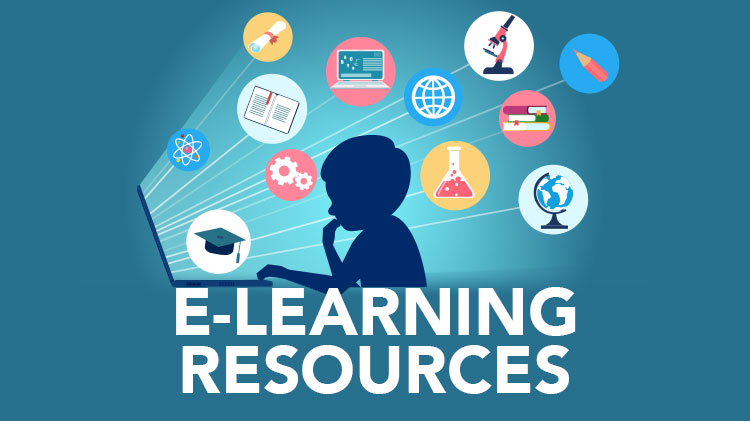- Information about your upcoming duty station and educational options in your new community
- Connection to a youth sponsor who can answer your child/youth’s questions about their new school/community from a peer’s perspective
- Assistance with the steps to prepare for the withdrawal of your children/youth from their current schools
- Provide information about the local educational options and enrollment processes
- Help with questions about compliance and solutions regarding the Interstate Compact on Educational Opportunity for Military Children
- Facilitate two way communication between the school and parent
- Assist in making connections with homeschool co-ops or support groups
- Answers to your questions about schools, homeschooling, special education, scholarships, transitions and more.
- Parent education opportunities about college and career readiness, preparing for transition and the Interstate Compact
- Finding a School
-
Finding a new school and registering your child can be confusing.
We can help.
Our SLOs give you information on local schools so you can find the best fit for you and your family. They can also help you with everything you need to register – and can answer other questions, too. Contact our office and to get more detailed information.
Research-based Characteristics of Quality Schools
Most schools share fundamental characteristics that prepare students for the future. Research shows that the most effective schools are more alike than they are different. Here is some information about what to look for in quality schools:
- Five Key Features of Effective Schools
- The United States Department of Education provides detailed information about choosing a school and offers a great number of resources to help you make an informed decision when choosing a school for your child.
Local Schools
Prince George County Public Schools
Grades K-5
- Harrison Elementary School
- Middle Road Elementary School
- South Elementary School
- North Elementary School
- L.L. Beazley Elementary School
Grades 6-7
Grades 8-9
Grades 10-12
Other Area School Districts
Chesterfield County Public Schools: http://mychesterfieldschools.com/Colonial Heights Public Schools: http://www.colonialhts.net/
Dinwiddie County Public Schools: http://www.dinwiddie.k12.va.us/
Hopewell Public Schools: http://www.hopewell.k12.va.us/
Petersburg Public Schools: http://www.petersburg.k12.va.us/
Families that reside on post will attend Prince George County Schools. Families who choose to reside off-post are strongly encouraged to research schools in the surrounding districts, including local childcare options if need be prior to selecting a place to live because school divisions generally do not allow out of district enrollment and must enroll in the schools in the area in which they live. There are currently no DODEA schools located on the Fort Gregg-Adams installation.Prekindergarten/Kindergarten: Children must be 5 years old on or before Sept. 30 of the school year to be eligible to attend kindergarten. There are no exceptions to this state requirement.
Prekindergarten programs are funded through the Virginia Preschool Initiative (VPI), federal Head Start and Title 1 grants awarded to public school divisions. Acceptance into a prekindergarten classroom is granted as slots are available after a complete application has been submitted, reviewed, and scored to determine eligibility. Invitation into the program is based on a first-come, first-serve basis. Children must be four years old on or before Sept. 30 of the upcoming school year. There are no exceptions to age and residency requirements and there is no cost to families if accepted into the program.
Parents should contact their child/children’s school for details and availability of the program.
Virginia Department of Education School Report Card: Please refer to the state report card so you can be informed and inquire when touring your school. Virginia has Standards of Learning and does not follow the Common Core. Every state has its own Department of Education which determines its own accreditation and standards. Because of this, it is not possible to compare it to schools outside of the state.
High School Senior Stabilization (Army Regulation 614-200, paragraph 5-26)
Soldiers with Family members in high school may request stabilization from PCS movement during the child’s senior year. The intent of the program is to provide stability to Soldiers with Family members in their junior and senior years of high school. The provisions of this section apply to RA Soldiers only. Army National Guard and Army Reserve Soldiers should contact their servicing personnel office for guidance. RA Soldiers assigned to non-Army agencies or units must comply with all directives and regulations that apply to their command before submitting their request (for example, Soldiers assigned to the Defense Courier Service (DCS) must comply with DOD Directive 5200.33).
Please visit United States Army Resource Command for additional information.
Contact the Fort Gregg-Adams School Liaison Officer for local schools registration information.
- Youth Sponsorship
-
Does your child have 101 questions about your next duty station? Let a youth sponsor answer them!
Youth sponsors connect with children before arrival at a new duty station, provide them with information about their new communities and answer questions from a youth perspective – while being guided by adults in the CYS youth program and the schools.
Once you arrive, a youth sponsor will meet your child and can arrange community and school tours.If you're preparing for a PCS move, contact your SLO today to sign up for a youth sponsor.
- Special Education Information
-
If you have a child with special needs, we can help you find the resources available in your school district. We can also connect you with your local installation’s Exceptional Family Member Program (EFMP) office.

- Local EFMP Resources
-
Who is eligible for the EFMP Program?
Family members of active duty personnel or reservists called to active duty who meet the following criteria:
- Is enrolled in DEERS
- Has been diagnosed with a chronic medical, mental health or educational condition (including gifted students) for six months or longer that requires special services
- Resides with the active duty sponsor
Must I enroll my family member with special needs in EFMP?
Yes, if you are an active duty family and someone in your family qualifies for the program enrollment is MANDATORY! Active duty service member will be screened for suitability prior to approval for accompanied travel. If the accompanying exceptional family member is enrolled in the EFMP, their needs will be considered early in the assignment process to ensure that medical and educational services are available. If their needs are only identified during the mandatory screening process often the assignment will be delayed while their needs are coordinated with the gaining location.
How does a service member enroll in the program?
Contact the nearest Army medical treatment facility EFMP point of contact to initiate the assessment process and obtain the enrollment forms. Once the forms are completed they are forwarded to the appropriate regional medical center for coding. Services members who work on or near Fort Lee can also contact EFMP, Army Community Service for additional services. The School Liaison Officer is available to help you navigate the EFMP process and there are a variety of on-line resources such as Military One Source to assist.
Fort Gregg-Adams EFMP Contact Information:
Kenner Army Health Clinic EFMP Office
700 24th Street, Building 8130
Fort Gregg-Adams, VA
Telephone: +1(804) 734-9130 or +1(804) 734-9132Army Community Service EFMP
1231 Mahone Avenue, Building 9023
Fort Gregg-Adams, VA
Telephone: +1(804)734-6393 or +1(804) 734-7965 - Additional References & Resources for Special Education
-
Highly mobile children are entitled to an expedited process, including: a) evaluations in 30 days instead of 60 days, b) removed delays due to school district schedules for Families moving during incomplete screenings, c) continued Extended School Year for students moving in the summer. The United State Department of Education, Office of Special Education and Rehabilitative Services outlines these requirements for State Directors of Special Education.
The Center for Parent Information and Resources offers parent education, acronyms, tools, webinars and a directory of local Parent and Information Training Centers to appropriately advocate for their children, proactively supporting personal accountability. Funded by OSEP.
Military OneSource has a range of resources in caring for a family member with special needs: education, health care, legal, financial, points of contact (EFMP, School Liaisons, etc.)
Military Community & Family Policy-Office of Special Needs provides directory of age-specific resources and States at a Glance for state education special education resources and parent resources.
DirectSTEP provides no-cost, Army sponsored online training for educators and parents on a host of special education topics such as understanding federal requirements, best practices for behavior management, IDEA eligibility, IEPs and more. Through the eCourses parents and educators learn how to apply education laws in order to obtain positive outcomes associated with critical education issues. Access the course listing and registration page through the links below.
- Home School
-
Home schooling has become mainstream and widely-used. We offer resources and information to help you provide quality home-based education.
Home School Legal Defense Association provides information on home school law, and general support and information about homeschooling.
Home Educators Association of Virginia
- Transition Support
-
We understand that military transitions for children include much more than school plans and enrollment. We have a number of resources to help make your move as easy as possible for the kids, including:
Military Kids Connect provides online age-appropriate resources to help parents, teachers and children cope with the unique challenges of military life.
The Interstate Compact on Educational Opportunity for Military Children (MIC3) addresses key transition issues military Families experience, including enrollment, placement, attendance, eligibility and graduation. All 50 states have signed the compact and are in varying stages of implementation and/or compliance. The compact applies to children of Active Duty service members, National Guard and Reserve members on active duty orders and members or veterans who are medically discharged or retired within past year.
If you feel that you have an issue that the Compact can help address talk with your SLO. The SLO is able to assist by connecting with both the sending and receiving school to assist in resolving the issue. If it is not possible to resolve the issue locally, the SLO will help you work with the state commission, and if needed, the national office.
- Post - Secondary Support
-
Our support doesn’t end with elementary education. If you have children preparing for academic life after high school, we can help you find information about testing opportunities, scholarships and military-specific resources that can help you plan.
The US Department of Veteran’s Affairs provides information about Military-Specific and Government Academic Support G.I. Bill
The Transferability of Educational Benefits for the Post 9/11 GI Bill are very specific. The Defense Manpower Data Center, through MilConnect will guide you through the transfer process and your eligibility to do so. Speak with an Education Counselor prior to making this election in order to ensure you understand the benefit.
In-State Tuition Programs for Military: Service-members, active duty for a period of more than 30 days and their dependents are eligible to receive in-state tuition at many public colleges and universities in the state where they reside or are permanently stationed. An enrolled dependent may pay in-state tuition as long as he or she remains continuously enrolled at the institution, even if the service-member is reassigned outside of the state. Regulations outlined in the Higher Education Opportunity Act, 2008 (P.L 110 - 135) and the Higher Education Act of 1965 (pdf) apply.
- Resources
-
Here are some additional web resources to assist you with your child’s education:
Academic Resources:
Tutor.com for U.S. Military Families makes live tutors available online 24/7 to help with more than 40 core subjects and standardized test preparation.
Homework Support: Army Child Youth & School Services provides Homework Labs in before/after school programs for elementary students at the School Age Center, and for middle and high school students at the Youth Center.
A personalized learning resource for all ages Khan Academy offers practice exercises, instructional videos, and a personalized learning dashboard that empower learners to study at their own pace in and outside of the classroom. We tackle math, science, computer programming, history, art history, economics, SAT and more.
Support/Resilience Resources:
School Support Services include information about other programs you can use for support and resilience-related issues.
Military Family Life Counselors (MFLCs) are available to meet in-person on or off the military installation. The free nonmedical sessions are anonymous and may occur in individual, couple, family or group settings. Child Behavioral Specialists are located on the installation in Child, Youth and School Services programs, and in highly impacted schools located on and off the installation.
Military OneSource has access to free nonmedical counseling that’s anonymous and available online, on the phone or in person. Twelve free sessions may occur in individual, couple, family or group settings.
Ready and Resilient Workshops for youth and educators are offered through the SLO and Youth Center programs. These workshops provide educators and students with the same tools Soldiers receive through their Ready and Resilient training. As Master Resilience Trainers SLOs strive to develop a common language around resilience for educators, youth and their parents.
For information on how to attend a class contact your local SLO.
College and Career Readiness Resources:
College and career readiness includes the content knowledge, skills and habits that students must have to be successful in postsecondary education. It also includes training that leads to a sustaining career. A student who is ready for college and career can qualify for and succeed in entry-level, credit-bearing college courses without needing remedial or developmental coursework. These links have tools that will help you plan for your child’s college and career readiness:
Army Educational Outreach Program (AEOP) provides STEM opportunities for military connected youth. The website provides information about AEOP programs available to youth, scholarship opportunities, news, and ways to get involved.
Military.com Scholarship Finder Military.com provides a search engine to help you find money for your child’s higher education needs. Search over 1000 scholarships intended for military youth. They also have a Military Scholarship Handbook.
School Support Services Scholarship Database Listing of crowd sourced scholarships for military connected youth. Scholarships are listed in alphabetical order and provide information on deadlines and qualifications.
Financial Aid
Provides a description of federal student aid programs from the U.S. Dept. of Education and how to apply for them.
Free Application for Federal Student Aid (FAFSA). Apply for federally funded financial assistance for education beyond high school.
Get Ready for College - College Planning, Financial Aid
- Frequently Asked Questions
-
What is a Unique Military Child Identifier? Numerous states have enacted a voluntary report-only self-identification of military children within their public school systems. This data collection would allow monitoring of critical elements such as academic progress and proficiency, special and advanced program participation, mobility and dropout rates. Requirements and method of collection vary from state to state.
Impact Aid
Many local school districts across the United States include within their boundaries parcels of land that are owned by the Federal Government. They must provide a quality education to the children living on the Indian and other Federal lands while sometimes operating with less local revenue than is available to other school districts, because the Federal property is exempt from local property taxes.
Congress has provided financial assistance to these local school districts through the Impact Aid Program. Each year Military members and Federal employees complete a Survey Form. The amount of Impact Aid – or federal assistance –received is determined by the number of eligible parents/guardians who complete the survey form. It partially compensates school districts affected by federal activity for local tax losses resulting from tax-free federal installations.
Impact Aid Fact Sheet (we will provide a hand out to link to)
Impact Aid Website
At overseas/international locations where there is not a Department of Defense Education Activity (DoDEA) school, NDSP supports a variety of options for your children, ranging from public or private schools to homeschool programs. NDSP has a team of education specialists who are available to provide transition and educational support and coordination for all students, including those with special needs. Sponsors are encouraged contact the NDSP as soon as possible for specific school information.
Phone Number +1 (571)372-5863 or +1 (571)372-1897
Where does my child attend school?
Your child(ren) will attend school designated for this or her residence. If you live on-post, your child will attend Prince George County Public School District.
Can I choose which school my child will attend?
Most school districts do not allow children to move out of the assigned school. However, some districts have developed a limited school-of-choice or open enrollment policy for students who wish to attend a school or program outside the area for which they are zoned. Applications for such request are usually offered at one specific time of the year. In most cases, attendance zone exceptions are limited by space including program space availability in the receiving school Contact your local school district for specifics.
How do I enroll my child in school?
Enrollment is handled at the your child(ren) assigned/zoned school; however, most schools at a minimum require the following documents:
- Birth Certificate
- Comprehensive Physical Examination (K-5)
- Immunization Records
- Proof of Residence (mortgage, rental agreement, government mail, utility bill, etc.)
- Current IEP or other School Records
- Court Issued Custody Papers (if applicable)
Some school districts provide a mass enrollment opportunity during the summer; please see your school district's website for more additional information.
There may be additional requirements from each school districts, so please contact your school district or the installation School Liaison Officer for further details.
What day does school start/end?
School Districts determine their academic calendars individually. Please see individual webpage for additional information and individual school calendars.
At what age can my child start school?
If the child reaches the age of five years on or before September 30th of the year he/she is presented for enrollment the child is eligible to enroll in Kindergarten. If his fifth birth date falls after September 30th, the child is not eligible to enroll.
Can I enroll my child into school if they do not meet the state age requirements?
The age requirement, or mandate, is not set by the local district; rather it is set by the state educational governing body, the Virginia Department of Education. Please contact your School District for further details.
What is the best school in the area?
The best school is not the school with the best grades, best sports program, or even best teachers. The "best" school is simply the school that provides the educational environment for which your particular family and child(ren) is looking for.
If there is a particular school you want your child to attend, it's best to do your research and find a house in the district in which the school serves. Please make sure you contact either the school district to confirm the school attendance area. School Support Services can provide guidance on how to select a school. However, because educational success depends on a myriad of factors, such as the needs of the child, academic goals, extra-curricular interests and housing decisions, it is not possible for School Support Services to recommend a "best" school.
Is transportation provided for my child to attend CYS Before and After Care Programs?
Transportation is provided for students who are registered with CYS Before and After Care Programs and reside in Fort Gregg-Adams housing only. All students who reside on Fort Gregg-Adams are zoned to attend Prince George County School Division. There are currently no waivers or exception to this policy.
Can Fort Gregg-Adams or School Support Services circumvent school policies?
No. Under no circumstances can Fort Gregg-Adams or School Support Services ever circumvent school policies.

Your garrison SLO is available to you whenever the need arises, but they can be especially helpful when you receive PCS orders. Below you will find some of the supports that the SLO can offer before, during, and after a PCS relocation.
Getting ready to move:
Once you arrive:
During your assignment:
The Interstate Compact on Educational Opportunity for Military Children (MIC3)
The Compact addresses key transition issues military Families experience, including enrollment, placement, attendance, eligibility and graduation. All 50 states have signed the compact and are in varying stages of implementation and/or compliance. The compact applies to children of Active-Duty service members, National Guard and Reserve members on active-duty orders and members or veterans who are medically discharged or retired within past year.
If you feel that you have an issue that the Compact can help address talk with your SLO. The SLO can assist by connecting with both the sending and receiving school to assist in resolving the issue. If it is not possible to resolve the issue locally, the SLO will help you work with the state commission, and if needed, the national office.
Compact Rules Book: Click Here
For assistance or to schedule your appointment, please contact the School Support Services Office at +1(804)765-3813 or +1(804) 479-0294.
Plan My Move: PCS Moving Checklist & Resources • Military OneSource


